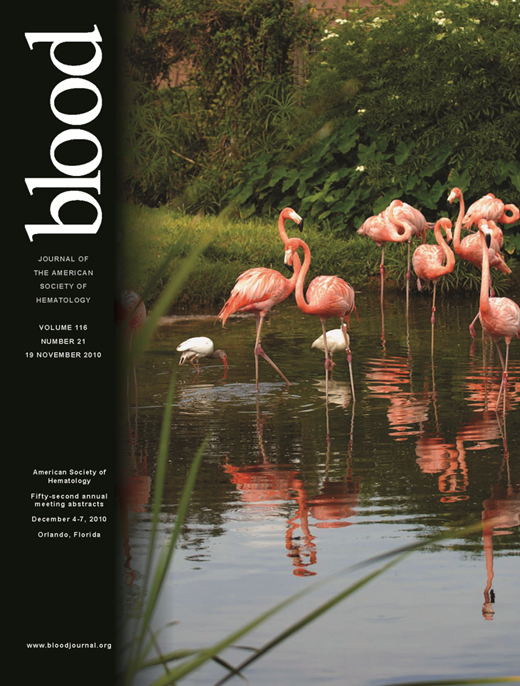Abstract
Abstract 1157
The involvement of IFN-γ in the pathophysiology of AA has been well documented, and overexpression of IFN-γ in the marrow and blood of patients with AA has been reported. T to A single nucleotide polymorphism (SNP) at position +874 of intron 1 of the IFN-γ gene (IFN-γ +874) can directly affect the expression of the IFN-γ gene since position +874 of intron 1 coincides with a putative nuclear factor (NF)-κB binding site. Thus far, no study has reported the correlation between the IFN-γ gene polymorphism and responsiveness of patients with SAA to immunosuppressive therapy. Therefore, we investigated the distribution of the IFN-γ +874 T/A gene by amplification refractory mutation system-polymerase chain reaction (ARMS-PCR), and analyzed the correlation between the IFN-γ +874 T/A gene and responsiveness of patients with SAA to IST. ARMS-PCR was used to amplify the polymorphic segments of the IFN-γ +874 T/A gene in the samples obtained from 54 patients with aplastic anemia and 51 healthy adults. Further, enzyme linked immunosorbent assay was used to assay IFN-γ levels in the blood plasma of 35 patients with severe aplastic anemia (SAA) before IST and 20 healthy blood donors. The results showed that the frequencies of IFN-γ +874 TT genotype in patients with aplastic anemia were significantly higher than the corresponding frequencies in the healthy adults (42.6% vs. 17.6%, χ2 = 13.780, p = 0. 01) (Table 1). The response rate in SAA patients with increased IFN-γ levels in the blood plasma was higher than that in SAA patients with decreased IFN-γ levels in the blood plasma (73.7% vs. 25.0%, p < 0.05). Of the 35 patients with SAA, 15 showed the IFN-γ +874 TT genotype, whereas response in 11 patients, the high response rate was significantly in the favor of the IFN-γ +874 TT genotype (73.3% vs. IFN-γ +874 non-TT 35%, p < 0.05) (Table 2). In conclusion, the IFN-γ +874 T/A gene polymorphism may be correlated with response to immunosuppressive therapy. Our study showed that the frequencies of IFN-γ +874 TT genotype in patients with AA were significantly higher than the corresponding frequencies in the healthy adults, thereby suggesting that IFN-γ +874 A/T gene polymorphism is correlated with the susceptibility of aplastic anemia. Our study also showed that a high concentration of IFN-γ in the blood plasma before receiving IST and IFN-γ +874 TT genotype were predictors of a good response to IST; this finding was consistent with that of other studies.
No relevant conflicts of interest to declare.
Author notes
Asterisk with author names denotes non-ASH members.

